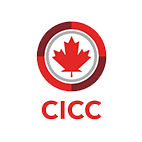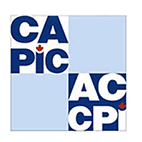Did you know that more than 800,000 international students have permission to study in Canada right now? Out of those students, over 550,000 received permission to study in 2022 alone. And over the past 21 years, the number of students holding Canadian Student Visa has gone up by more than four times.
In 2022, there were 107,145 more study permits issued than in 2021. This growth has led to a record-breaking number of international students in Canada, with 807,750 international students holding valid study permits as of the end of 2022.
Immigration, Refugees and Citizenship Canada (IRCC) reject approximately 1 in 3 student visa applications. Receiving a refusal for a Canadian student visa can be discouraging, but it is important to remember that there are still options available. If you have faced this rejection recently, you must follow some important steps before reapplying.
In this guide, we will describe 7 practical things you can do after a refusal of a Canada student visa.
- Understand the Rejection Reason: Identify the specific reasons for your visa rejection. Order Global Case Management System (GCMS) notes for more clarity.
- Improve Language Skills: Improve your skills if rejected due to low language proficiency. Take language classes, hire a tutor, or enroll in online courses.
- Strengthen Statement of Purpose (SOP): Craft a compelling SOP demonstrating your genuine intent to study in Canada. Clearly outline your reasons for choosing Canada and your plans post-study.
- Review and Correct Mistakes: Carefully review your previous application for errors. Correct any mistakes or omissions that may have contributed to the refusal.
- Emphasize Home and Family Ties: Highlight strong ties to your home country, such as family connections, property ownership, etc. Showcase your commitment to returning after completing your studies.
- Provide Solid Proof of Financial Support: Submit concrete evidence of sufficient funds for education and living expenses. Include your bank statements and a support letter from the sponsor.
- Consider Professional Help: Hire a Regulated Canadian Immigration Consultant (RCIC) for expert guidance. An RCIC can identify weaknesses in your application and advise on improvements.
Why is a Canada Student Visa Rejected?
IRCC can reject a Canada student visa application for various reasons. Many students experience rejection for failing to demonstrate they possess enough funds to pursue higher education in Canada or that they will return to their home country after completing their program.
In other cases, the student’s immigration agent may have been too slow in gathering and submitting the required forms. A Regulated Canadian Immigration Consultant is better suited to handling student visa applications.
These consultants are licensed to provide immigration-related services and are familiar with the requirements and timelines prospective international students must follow when completing and submitting their student visa applications.
They can assess your profile and evaluate your forms for any mistakes. For this reason, IRCC is less likely to reject your application if it was created with a Regulated Canadian Immigration Consultant’s help.
Read more: Canada Study Permit Refusal Reasons
7 Practical Things To Do After a Refusal
You should follow the tips described below after receiving a student visa refusal.
1. Find out why your visa application was refused
It is critical to understand the reasons for student visa rejections after receiving yours. This includes:
- Your reason for visiting Canada isn’t to study
- You have limited employment prospects in your home country
- Your current employment situation is unstable
- You don’t possess enough assets in your home country
- You lack strong family ties in your home country
- You have temporary immigration status in your current country
- You don’t have a strong travel history
- You failed to provide enough educational documents
- You don’t have enough funds to pursue higher education in Canada
- You demonstrated that you intend to work and settle in Canada after completing your studies
- You included a poorly structured cover letter with your application
If you still don’t know why your application was rejected, you can order your Global Case Management System (GCMS) notes to learn more. Be sure to understand your refusal reason before attempting to reapply.
2. Poor Language Skills
If IRCC rejected your student visa application due to receiving a low score on a language proficiency exam. If your visa was refused due to language proficiency, you will need to work on improving your language skills.
This could involve taking language classes, working with a private tutor, or taking online courses. Make sure to check the language requirements for the Canadian student visa and ensure that you meet the necessary language proficiency standards.
3. Write a Stronger SOP for Canada Study Visa After Refusal
Prospective international students must include a statement of purpose (SOP) with their student visa applications. This SOP must include information on why the student chose to study in Canada and what they intend to do after completing their program.
You should ensure the SOP you provide with your second application attempt is strong. It should be written well and clearly demonstrate your intention to study at one of Canada’s quality colleges or Universities and that you intend to go back to your home country afterward.
A Perfect Cover Letter for Student Visa Application (with Sample)
4. Review and Correct Any Mistakes
You should ensure you fully complete your student visa application and include the correct information in each area. IRCC often rejects students who make mistakes on their applications, so minimizing such mistakes is crucial to your approval.
This step involves reviewing your previous application and making corrections to any errors or omissions that may have contributed to the refusal. This could include updating information, submitting additional documents, or addressing any concerns raised by the visa officer.
5. Home and Family Ties
“Home and family ties” typically refer to an applicant’s connections to their home country, such as their immediate family, extended family, social ties, and cultural connections. These ties are important for visa officers to consider because they help determine an applicant’s likelihood of returning to their home country after their studies in Canada are completed.
You must show that you have many ties to your home country on your new application. This includes demonstrating that you own assets and/or property you cannot abandon. You should also mention any dependent parents or children you will need to return to after your studies are complete.
6. Proof of Financial Support
Proof of financial support refers to the evidence that demonstrates that an applicant has sufficient funds to cover the cost of their education and living expenses during their stay in Canada. This is a requirement for obtaining a Canadian student visa and is an important factor that visa officers consider when assessing an applicant’s application.
If you believe IRCC rejected your application for failing to show sufficient proof of funds, you should provide concrete proof of financial support. This includes your own bank statements from the person supporting you as their letter declaring their intention to support you throughout your studies in Canada.
7. Hire Licensed Experts for Canada Student Visa Refusal
Consider hiring a Regulated Canadian Immigration Consultant to help you maximize your odds of succeeding in your reapplication process. An RCIC will be able to identify any weaknesses in your application and advise you on ways to improve them.
Here are some reasons why you may want to consider hiring a licensed immigration consultant if your Canadian student visa application has been refused:
- Expertise and experience: Licensed immigration consultants and lawyers have specialized knowledge and experience in Canadian immigration law and regulations.
- Professional advice and representation: A licensed immigration consultant or lawyer can provide you with professional advice and representation when communicating with Canadian immigration authorities.
- Improved chances of success: By hiring a licensed immigration consultant or lawyer, you may improve your chances of success in your Canadian student visa application.
- Reduced stress and anxiety: By hiring a licensed immigration consultant or lawyer, you can reduce your stress and anxiety by having a professional handle the process for you.
Can I Reapply or Appeal After the Refusal of my Canada Student Visa?
You can request to have your application reviewed or reapply directly following a student visa rejection.
Getting Your Application Reviewed
Some people opt to get their application reevaluated when they believe IRCC unfairly refused to grant them a study visa. Such students may then file an appeal against their rejection in a Federal court. This is a lengthy process that few students are willing to go through.
In addition to this, the student success rate through this method is relatively low, so it may not be worth pursuing except in special cases.
Reapplying
It is best to apply for your Canada student visa following a rejection. This approach offers a higher success rate than the rejection appeal approach.
There’s no mandatory waiting period between rejection and reapplying, so prospective students should create and submit a new application as soon as possible if they wish to come to Canada before their education program starts.
Canada Student Visa Rejected, Should I Apply Again in 2024?
Can’t Reapply? Explore Other Options
If reapplying for a Canadian student visa is not an option, there are other options that you can explore to achieve your goals of studying in Canada. Here are some alternative options:
1. Apply for a Visitor Visa
If you are unable to obtain a student visa, you may want to consider applying for a visitor visa instead. A visitor visa will allow you to travel to Canada for a temporary period, and you can use this time to explore educational opportunities in the country.
2. Consider Online Learning
Many Canadian universities offer online courses and degree programs that you can complete from anywhere in the world. This can be a cost-effective and flexible alternative to traditional classroom-based learning.
3. Seek Advice from a Qualified Immigration Consultant
A licensed immigration consultant can provide you with valuable advice on alternative options for studying or working in Canada. They can help you explore your options and determine the best course of action for your situation.
4. Consider Other Countries
It is true that Canada has a relatively straightforward immigration process compared to many other countries, and is a popular destination for international students. However, if your Canadian student visa application has been refused, it may be worth considering other countries as alternative options.

Feeling lost and overwhelmed after refusal? you’re not alone.
With consultations starting from just $50 CAD, you can receive valuable insights and advice to help you achieve your study goals in Canada.
Need Help?
If you’re interested in finding Registered Canadian Immigration Consultants with an excellent track record, please contact Elaar Immigration. Our consultants understand how IRCC assesses student visa applicants and can help you optimize your application before you reapply. Start studying in Canada with Elaar Immigration’s help.









